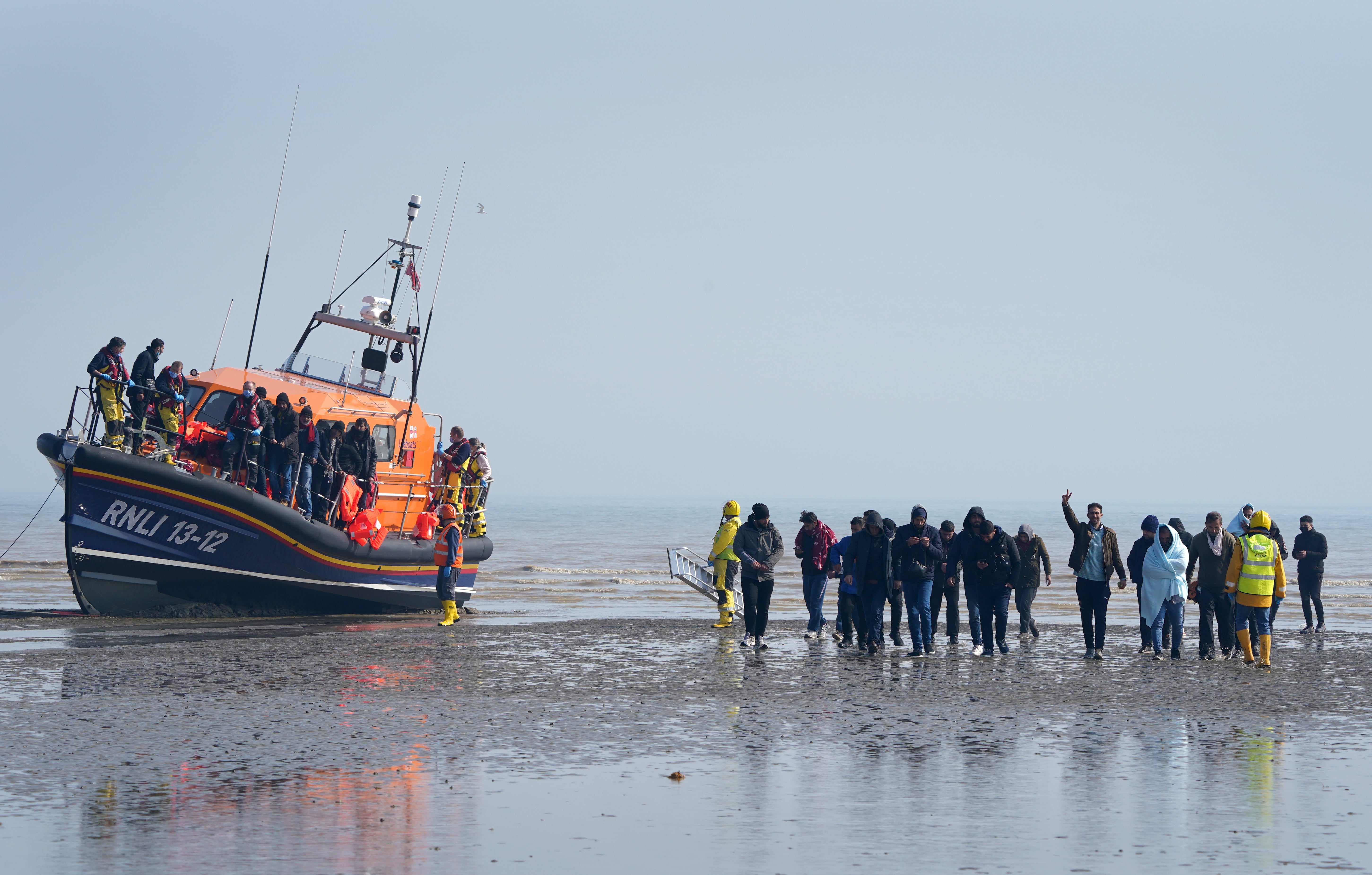5,000-plus migrants thought to have reached UK this year after crossing Channel
Crossings resumed this week, with large numbers of people arriving in Kent, after few tried the journey in the last week of March amid bad weather.

Your support helps us to tell the story
From reproductive rights to climate change to Big Tech, The Independent is on the ground when the story is developing. Whether it's investigating the financials of Elon Musk's pro-Trump PAC or producing our latest documentary, 'The A Word', which shines a light on the American women fighting for reproductive rights, we know how important it is to parse out the facts from the messaging.
At such a critical moment in US history, we need reporters on the ground. Your donation allows us to keep sending journalists to speak to both sides of the story.
The Independent is trusted by Americans across the entire political spectrum. And unlike many other quality news outlets, we choose not to lock Americans out of our reporting and analysis with paywalls. We believe quality journalism should be available to everyone, paid for by those who can afford it.
Your support makes all the difference.More than 5,000 migrants are thought to have arrived in the UK this year so far after crossing the English Channel.
Since the start of 2022, 4,617 people had reached the UK after navigating busy shipping lanes from France in small boats as of Tuesday, according to data obtained from the Home Office and compiled by the PA news agency.
Prime Minister Boris Johnson is expected to say that around a further 600 arrived on Wednesday – taking the total to over 5,000 for the year so far – and will warn that the number of people making the perilous crossing of the Channel could reach 1,000 a day within weeks.
Crossings resumed this week, with large numbers of people arriving in Kent, after few attempted the journey in the last week of March amid poor conditions and bad weather.
In the latest round of incidents, women and young children were among those seen on several boatloads arriving in Dover after being brought ashore on Border Force vessels and an RNLI lifeboat.
If confirmed, 600 would be the highest daily total recorded for the year so far.
The previous highest daily total for this year was recorded on March 15 when 405 people made the crossing on 12 boats, analysis shows.
A record 1,185 people made the crossing to the UK on November 11 2021 – the highest recorded so far since the start of 2020.
In March this year, 3,066 people made the crossing.
This is nearly four times the amount recorded for the same month in 2021 (831) and more than 16 times the amount for 2020 (187).
It is also the fourth highest monthly total recorded since the start of 2020, behind July (3,510), September (4,652) and November (6,869) last year.
A total of 28,395 people made the crossing in 2021, compared with 8,417 in 2020.
It comes as the Government is expected to announce plans to send asylum seekers to Rwanda for processing.
Mr Johnson is set to argue on Thursday that action is needed to combat the “vile people smugglers” turning the ocean into a “watery graveyard”.
After a speech from the Prime Minister, Home Secretary Priti Patel is expected to set out further details of a “migration and economic development partnership” with Rwanda, during a visit to the East African nation.
Ms Patel and her department have already promised millions of pounds of public money to French authorities in a bid to find ways to stem the growing number of crossings.
Mr Johnson signed off plans in January for the military to take over command of tackling the number of migrant crossings, known as Operation Isotrope, from Border Force.
More detail on when the Ministry of Defence (MoD) will take charge, or how this will work, is yet to be made public.
Despite the increasing numbers, the UK’s small boat arrivals are a fraction of the number of people arriving in Europe.
At least 120,441 people arrived in Europe via the Mediterranean by land and sea in 2021, according to data from the UN’s refugee agency the UNHCR.
This Government's response must be a humane, fair and orderly asylum system
Meanwhile the Government has faced a backlash over its Nationality and Borders Bill, which is going through Parliament and has been dubbed the “anti-refugee Bill” by campaigners.
Earlier this month stars including Emma Thompson, Meryl Streep, Daniel Radcliffe and Sylvester Stallone called on the Government to reverse the “cruel” Bill, which they claimed would criminalise refugees, including those fleeing the conflict in Ukraine, if they do not arrive in the UK via an officially sanctioned route.
Enver Solomon, chief executive of the Refugee Council, said: “The people crossing the Channel are men, women and children fleeing war and oppression in countries like Afghanistan and Syria who literally have no choice but to make desperate, terrifying journeys to find safety.
“This Government’s response must be a humane, fair and orderly asylum system. Instead, it is pushing through a draconian, harmful Bill that would criminalise men, women and children for being forced to take desperate measures to find safety.”
Tom Pursglove, minister for justice and tackling illegal migration, said: “The rise in dangerous Channel crossings is unacceptable.
“Not only are they an overt abuse of our immigration laws but they also impact on the UK taxpayer, risk lives and our ability to help refugees come to the UK via safe and legal routes. Rightly, the British public has had enough.
“Through our Nationality and Borders Bill we’re cracking down on people smugglers and fixing the broken system by making it a criminal offence to knowingly arrive in the UK illegally, and introducing a maximum sentence of life imprisonment for those who facilitate illegal entry into our country.”